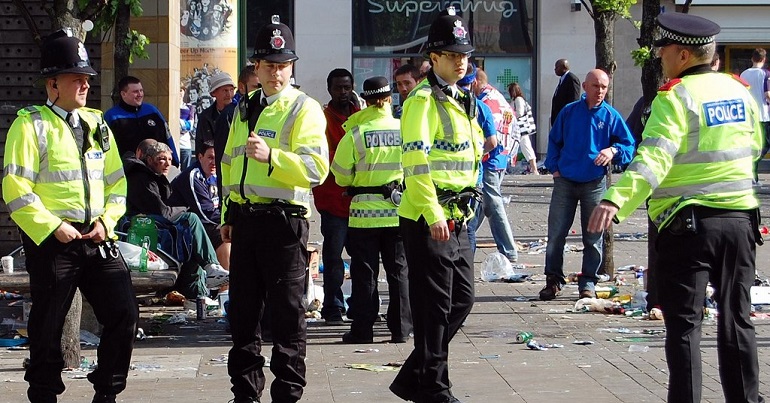The problem with policing isn’t just funding – it’s priorities

I’m always fascinated when I watch a modern crime drama by the clever ways in which forensic crime scene investigation can bring people to justice. The technology has progressed so rapidly in the last four decades and the databases containing our biometrics have become so comprehensive that you wonder how anyone gets away with car theft, let alone murder. So why do a third of murders in the USA regularly go unsolved and why did our own detection rates in London fall to similar levels last year?
I find that failure to solve the worst of crimes both shocking and surprising. In London’s case, it can be partly explained by the fact that the number of murder detective teams was drastically cut and detection rates plummeted.
One of Britain’s most successful (ex) drugs enforcement officers, Neil Woods, has raised the question of whether we have become so fixated by the war on drugs that it takes priority over everything else. If this is the case and drug gangs are seen as the biggest challenge confronting modern policing then why isn’t anyone discussing solutions at this general election? The Greens have long believed in decriminalisation, but there are now many ex law enforcement officers, like Neil Woods, saying it publicly and many more still in uniform who think it privately.
We need to look at a different solution for each drug, but the direction would be towards decriminalisation with hard drug use returning to its previous status as a medical issue, while the softer drugs are heavily regulated and taxed, as we do with cigarettes and alcohol. In one go we pull the rug from under the multi-national trade in illegal drugs and deprive criminal gangs of their most lucrative source of income. The huge spending on drugs enforcement can be gradually scaled back and we can reallocate those police resources onto more conventional forms of crime.
The best historical example of decriminalisation happening is the ending of the prohibition of alcohol in nineteen thirties America. People had carried on drinking throughout prohibition, which made the gangs rich and elements of the justice system corrupted by the easy money.
Boris hopes that restoring 20,000 of the policing jobs that have been cut because of austerity, will be enough to win him votes. Labour are determined to expose it as the token gesture. As Greens we look at the big picture and big solutions. While the mainstream political debate is focused upon policing numbers, Greens want to discuss what those police are used for and what crimes are prioritised.
This isn’t just because we can see police resources being wasted tracking and arresting environmental campaigners involved in Extinction Rebellion, or clamping down on local communities opposed to fracking. This is about the scandal of hundred of thousands of crimes being listed as not worth investigating by the police who see no hope of providing justice to the victims of car crimes, or vandalism, burglaries or theft, due to the lack of obvious evidence.
For all the technological progress, the police have a well-established system which stops them putting extra work into over a third of crimes, beyond the initial report stage.
Take for example my personal priority, creating safer roads. 40 people a day are killed or injured on the roads in the UK in hit and run collisions. We have lawless roads because of the historical decline in the numbers of traffic police and austerity has halved those numbers since 2010.
If you are one of the thousands of pedestrians killed or seriously injured on our roads, then there is now over a one in ten chance that the driver will have tried to escape without stopping. For all our cameras and forensic teams, the truth remains the same as when a traffic police sergeant told me back in 2001 “the best way to kill someone and get away with it, is to run them over.”
The debate about policing needs to be a debate about people and priorities, not just money.
Jenny Jones is a Green Party member of the House of Lords.
With the UK now set for a General Election on December 12, Bright Green is publishing a series of articles from the spokespeople of progressive political parties on how their policies would transform the country. This article is part of that series – all articles can be found here.
Image credit: zxzoomy – Creative Commons




Leave a Reply